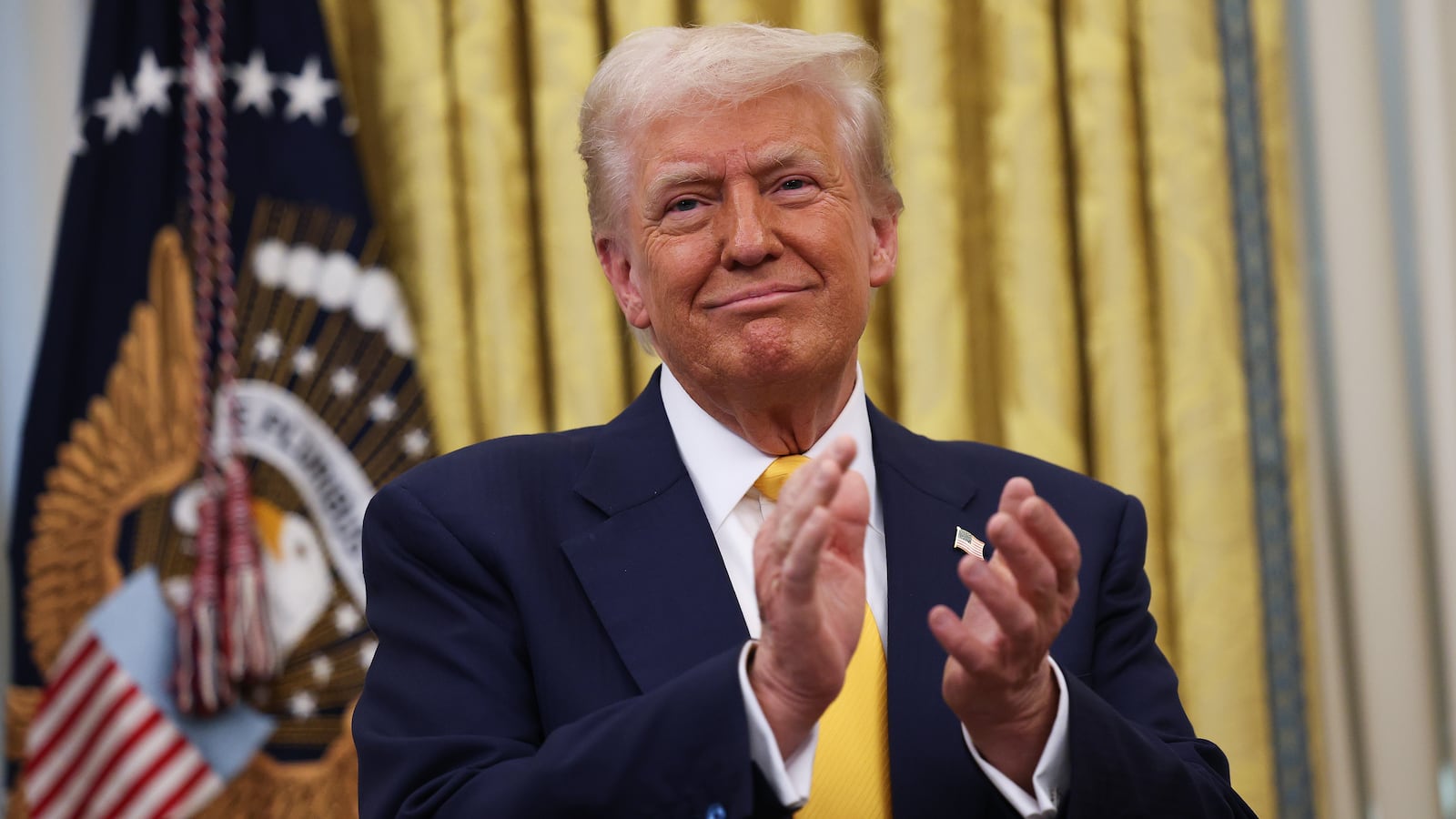A Trump-appointed federal judge in Washington, D.C. denied the Associated Press' request to immediately stop the Trump administration from banning its reporters from events—though he seemed open to ending it soon.
Judge Trevor N. McFadden said during a Monday court hearing that the temporary protective order the AP sought to allow its reporters back into White House events was an “extraordinary remedy,” according to The Washington Post. McFadden did, however, seem open to the news wire’s claim that the ban amounted to viewpoint discrimination, and he ordered an expedited consideration of a preliminary injunction against the White House.
The next hearing is set for March 20.
The AP sued three White House officials on Friday after the White House barred it from multiple events over its decision to continue using the “Gulf of Mexico” name over Donald Trump’s preferred “Gulf of America.” It named White House Chief of Staff Susie Wiles, Press Secretary Karoline Leavitt, and Deputy Chief of Staff Taylor Budowich as defendants.

The White House cheered McFadden’s decision on Monday, even though the case will continue.
“As we have said from the beginning, asking the President of the United States questions in the Oval Office and aboard Air Force One is a privilege granted to journalists, not a legal right,” a spokesperson said. “We stand by our decision to hold the Fake News accountable for their lies, and President Trump will continue to grant an unprecedented level of access to the press. This is the most transparent Administration in history.”
“We look forward to our next hearing on March 20 where we will continue to stand for the right of the press and the public to speak freely without government retaliation,“ AP spokesperson Lauren Easton said in a statement. ”This is a fundamental American freedom.”
McFadden told the White House officials’ attorney that one of the emails cited by the AP “seems to me to be pretty viewpoint-based,” according to the Post. He also told the lawyer that “the law in this circuit has been unhelpful to the White House when the White House has banned reporters in the past,” suggesting the defendants think about that.
However, he rejected the request for a TPO over the AP’s weeklong wait to file the suit and the two sides’ differing positions on whether the AP has suffered “irreparable harm” over the ban.
A motion filed by the White House officials on Monday said the AP continued to have access to the White House grounds and briefing room and still received pool reports. President Trump’s decision to ban the AP, it said, was at his discretion because no outlet was guaranteed special access to the president.
“Presidents historically provided this special access to the Associated Press, but that discretionary choice does not create a constitutional right,“ they wrote. ”Just as the President need not furnish a personal interview to all journalistic comers, the President has discretion to decide who will have special media access to exclusive events within the Oval Office.”

The AP said the decision was a constitutional violation because the White House had tried to police its speech, violating its First and Fifth Amendment rights. “The Constitution does not allow the government to control speech,“ it said in its complaint. ”Allowing such government control and retaliation to stand is a threat to every American’s freedom.”
Both the White House Correspondents’ Association and the Reporters’ Committee for Freedom of the Press filed amicus briefs siding with the AP.







